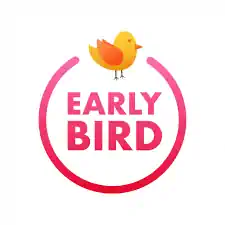Letter Sounds
Specific Learning Outcomes
By the end of the sub-strand, the learner should be able to: a) Articulate vowels correctly in and out of school.
- Articulate consonants correctly in and out of school.
- Demonstrate awareness of letter-sound correspondence in class.
- Take pleasure in articulating vowels and consonants in and out of school.
Suggested Learning Experiences
- Learners could observe charts with all the letters of the alphabet on the wall.
- Learners could be guided to recite letters of the alphabet.
- Learners could observe and imitate articulation of vowel sounds (a, e, i, o, u) after watching a demonstration.
- Learners could be encouraged to articulate letter sounds after the teacher.
- Learners could be encouraged to practise articulating vowel sounds.
- Learners could be engaged in singing songs, reciting poems and rhymes relating to vowel sounds
- Learners should be encouraged to practise articulating consonant sounds.
- Learners could be engaged in singing songs, reciting poems and rhymes relating to consonant sounds.
- In pairs or small groups, learners could be engaged in activities such as sound articulation games e.g. fishing games, skittle games, dice games among others to enhance sound articulation.
- Learners could articulate through use of flash cards, charts, child’s play and daily experiences.
- Learners could be engaged in viewing recorded clips of letter sounds and illustrations to help them connect letters with their respective sounds.
- Learners could listen to sound clips and manipulate other interactive programmes that enhance letter sound articulation.
- Learners could be guided to relate the upper case (capital) letters and the lower case (small) letters with corresponding sounds.
Key Inquiry Questions
- How do different letters sound?
- What is the sound corresponding to each upper case (capital) letter and its equivalent lower case (small) letter?
- Which activities provide opportunities for learners to articulate specific letter sounds?
Core competence developed: Learning to learn, digital literacy, communication and collaboration
Link to PCI: Citizenship: Social integration
Life skills: Effective communication.
Link to values: Unity
Link to other activity areas:
Psychomotor and Creative Activities
Suggested community service learning
With one or two other pre-primary schools, organise a joint fun learning day with an emphasis on letter sound articulation activities including songs, games, poems and rhymes.
Suggested Non-formal activity to support learning through application Learners present an outdoor singing game for letter sound articulation during the school assembly.
Suggested assessment: Oral questions, observation, portfolio
Teaching/Learning Resources: Charts, flash cards, letter cut-outs, letter charts, video clips, ICT devices, radio programs
Suggested Assessment Rubrics
Exceeds expectation
Fluently articulates vowels and consonants, and corresponds letters to sounds appropriately.
Meets expectation
Articulates most vowels and consonants correctly and corresponds most letters to sounds appropriately.
Approaching expectation
Articulates some vowels and consonants correctly and corresponds some letters to sounds appropriately
Below expectation
With guidance, articulates vowel and consonant sounds but has difficulty corresponding letters to sounds.
